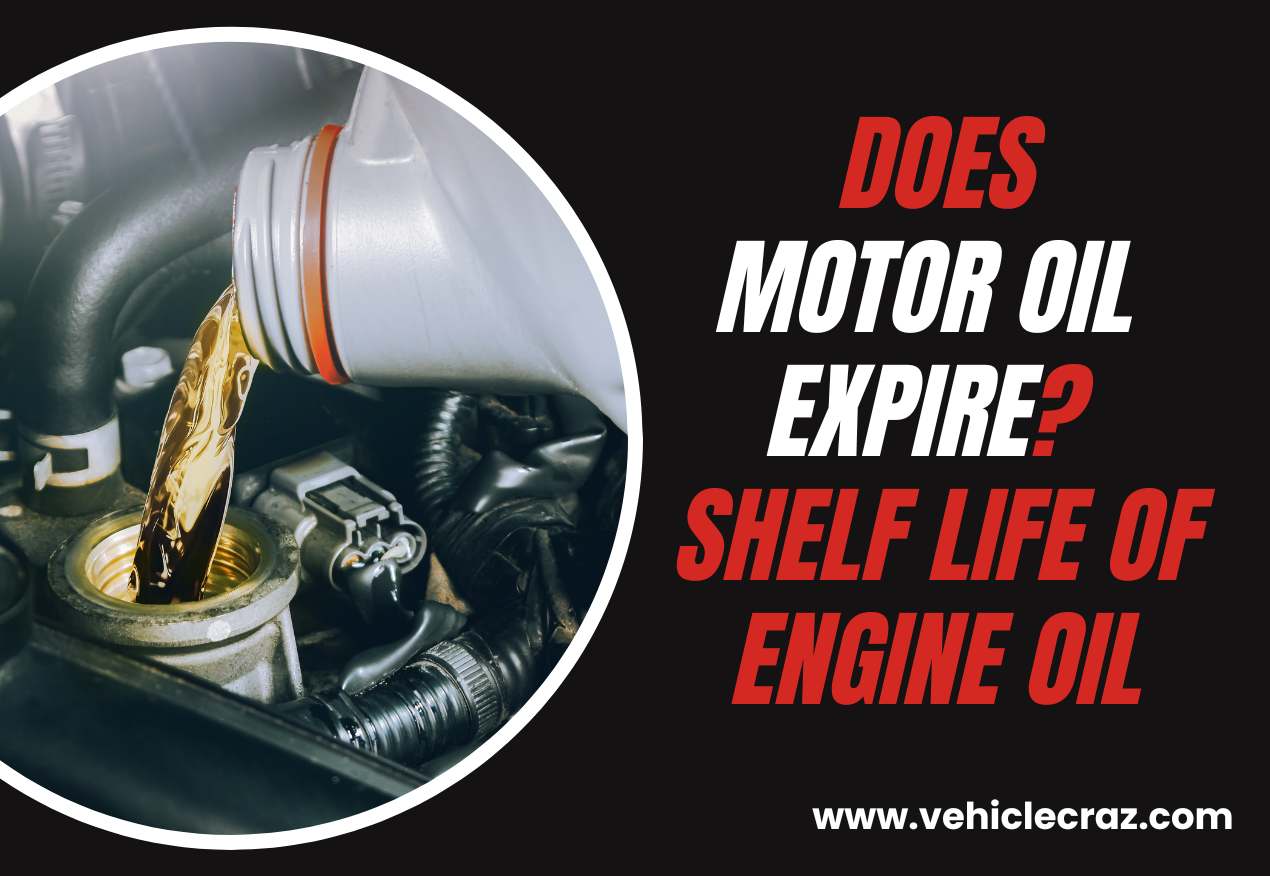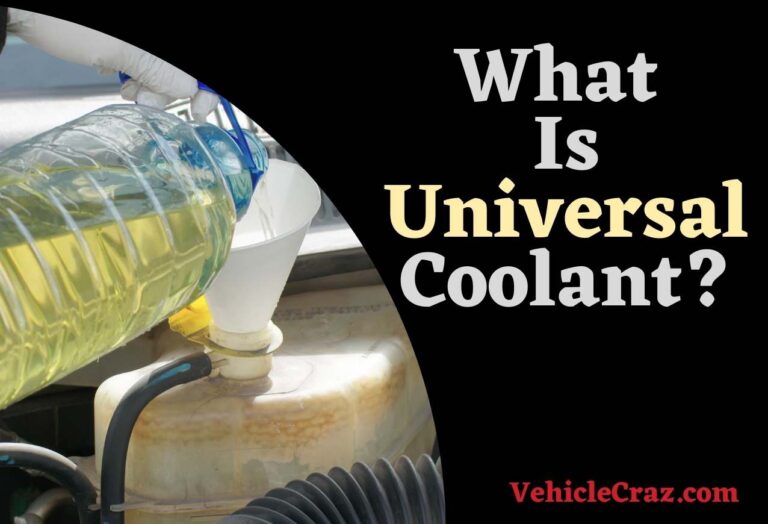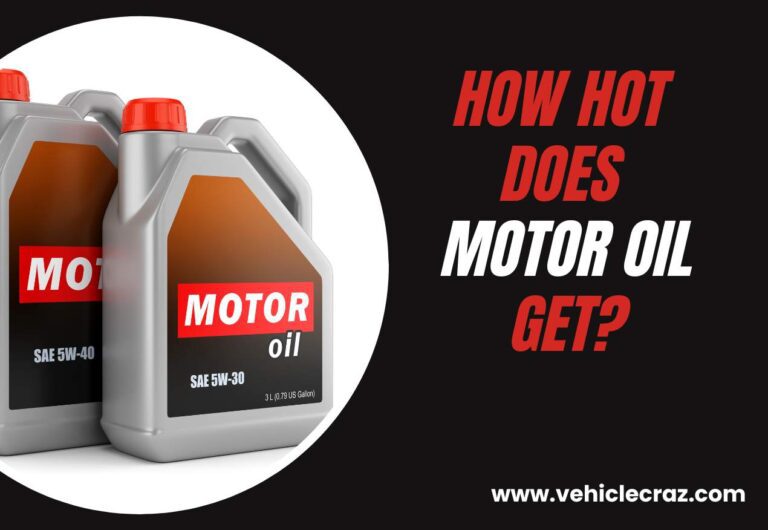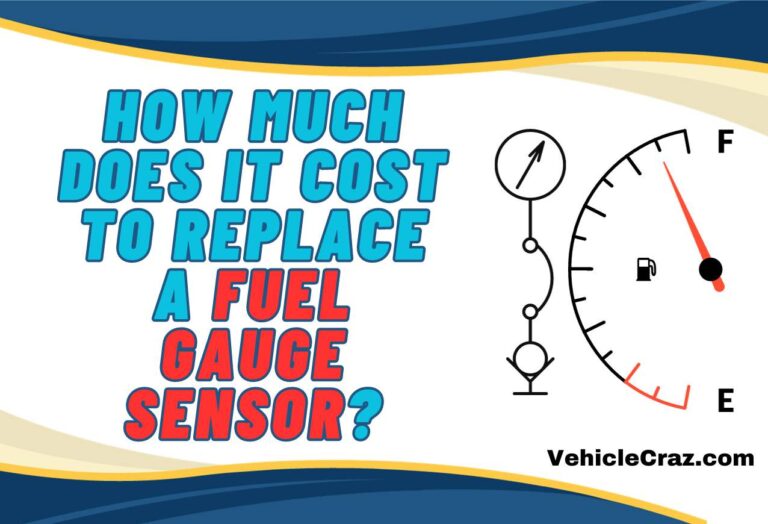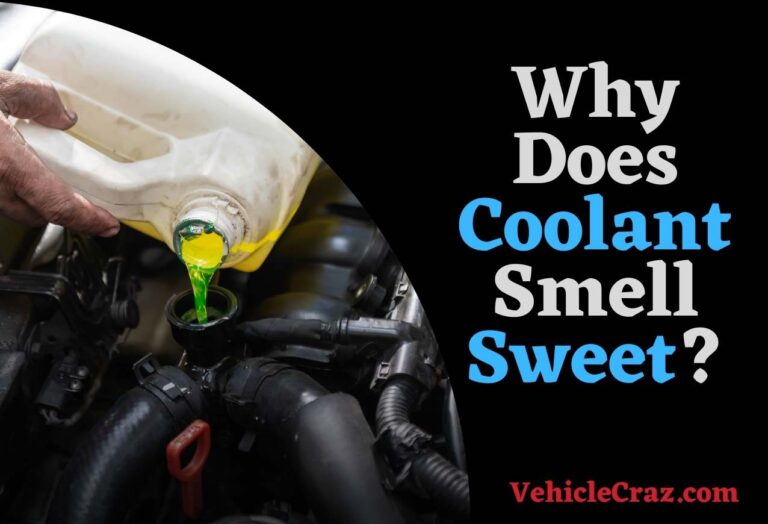Does Motor Oil Expire? Shelf Life of Motor Oil Explained
Motor oil is the bloodstream of a vehicle. So, no wonder as a responsible driver you want to whether motor oil has an expiration date and you ask yourself does motor oil expire? What happens if you use expired motor oil?
These are crucial questions that require correct answers. That is why you should read our report till the end without skipping.
Does Motor Oil Expire?
Yes, motor oil can expire. Over time, exposure to air, heat, and moisture can cause motor oil to break down, lose its effectiveness, and eventually expire. Most motor oil manufacturers recommend using motor oil within three to five years of purchase.
How Long Does Motor Oil Last?
Motor oil typically lasts for about three to five years if stored properly. However, this can vary depending on the oil’s ingredients and from one product to another. In addition, exposure to factors such as heat, moisture, and air can accelerate motor oil degradation.
That is why you should check the expiration date on the oil container and follow the manufacturer’s recommendations. Using expired oil can lead to engine performance issues and potential damage. We will discuss these in detail later in the article.
What Causes Motor Oil to Go Bad?
Motor oil can go bad due to several factors. Here we have explained them in detail.
Exposure to Oxygen
Exposure to oxygen, or air, can lead to the oxidation of motor oil. Oxidation occurs when the molecules in the oil react with oxygen. This will result in chemical changes that break down the oil’s molecular structure.
This process can cause the oil to thicken and form sludge. Once this happens the motor oil’s ability to flow smoothly and lubricate the engine’s moving parts effectively will reduce. As a result, the motor oil becomes less effective at reducing friction, cooling the engine, and protecting against wear and corrosion.
In order to prevent this issue, it is important to change the motor oil to remove old, oxidized oil and ensure that your engine stays properly lubricated.
Heat
High temperatures can cause motor oil to break down through a process called thermal breakdown. When motor oil is exposed to high temperatures, such as those found in a running engine, the heat can cause the long hydrocarbon chains in the oil to break apart.
This results in the oil becoming thinner, or less viscous, which reduces its ability to maintain a stable lubricating film between moving parts. As a result, the engine may experience increased friction and wear, leading to potential damage over time.
Additionally, high temperatures can also cause the oil to evaporate more quickly, reducing its overall effectiveness as a lubricant.
Moisture
Moisture contamination in motor oil can occur due to several factors, including condensation and leaks. When a vehicle is not in use, especially in environments with fluctuating temperatures, moisture from the air can condense and mix with the oil. Additionally, leaks in the cooling system or a faulty gasket can allow water to enter the oil system.
Moisture in motor oil can lead to several issues. First, water does not mix well with oil and can cause the oil to become foamy, reducing its lubricating ability. Second, water can react with additives in the oil, leading to the formation of acids and sludge, which can damage engine components. Finally, water can accelerate the oxidation of the oil, further reducing its effectiveness as a lubricant.
To prevent moisture contamination, it’s essential to store motor oil in a cool, dry place and fix any leaks in the vehicle’s cooling system promptly. Regular oil changes can also help remove any moisture that has accumulated in the oil.
Additive Depletion
Motor oil contains various additives that enhance its performance and protect the engine. These additives include detergents, dispersants, antioxidants, and anti-wear agents. Over time, as the oil is exposed to heat, pressure, and contaminants, these additives can become depleted.
When additives are depleted, the oil may lose its ability to effectively clean the engine, disperse contaminants, and resist oxidation. This can lead to increased engine wear, buildup of deposits, and reduced overall engine performance.
Regular oil changes are essential to replenish the additives in the oil and ensure that it continues to provide adequate protection for the engine. Using high-quality oil and following the manufacturer’s recommended oil change intervals can help prevent additive depletion and maintain engine health.
Contaminants
Contaminants such as dirt, dust, metal particles, and fuel residues can enter the motor oil through various means, including combustion by-products, engine wear, and external sources. These contaminants can accumulate in the oil over time, leading to several issues.
First, contaminants can act as abrasives, causing increased wear on engine components such as bearings, pistons, and cylinders. This can lead to reduced engine efficiency, increased friction, and potentially severe engine damage if left unchecked.
Second, contaminants can affect the oil’s ability to lubricate and protect the engine. They can disrupt the oil film that separates moving parts, leading to increased metal-to-metal contact and wear. Contaminants can also react with the oil, causing it to thicken or form sludge, which can further reduce its effectiveness as a lubricant.
Regular oil changes and using high-quality oil filters can help remove contaminants from the oil and prevent them from causing damage to the engine. It’s also essential to maintain a clean air filtration system in your vehicle to minimize the amount of dirt and debris that enters the engine.
Storage Conditions
Improper storage, such as exposure to sunlight or extreme temperatures, can accelerate oil degradation. We will discuss this separately later.
What Happens if You Use Expired Engine Oil?
This is what happens if you use expired motor oil. Knowing the consequences will help you keep these issues at bay.
Reduced Lubrication
Expired oil may have degraded to the point where it can no longer effectively lubricate the engine’s moving parts. This can lead to increased friction and wear on critical components, potentially shortening the engine’s lifespan.
Poor Engine Performance
Expired oil may not be able to properly clean and protect the engine, leading to reduced performance and efficiency. This can result in decreased fuel economy and power output.
Increased Engine Wear
Without proper lubrication and protection, the engine’s components can experience increased wear and damage. This can lead to costly repairs and potentially engine failure.
Potential Engine Damage
Using expired oil can increase the risk of engine damage, including piston scuffing, bearing wear, and valve train damage. In severe cases, using expired oil can cause catastrophic engine failure.
Oil Filter Clogging
Expired oil may contain more contaminants and particles, leading to increased strain on the oil filter. This can result in reduced oil flow and potentially engine damage due to inadequate lubrication.
How to Store Engine Oil Properly?
Storing engine oil properly is crucial to maintaining its quality and extending the lifespan of motor oil. Here’s how to do it:
- Store engine oil in its original, tightly sealed container. Avoid transferring it to other containers, as this can introduce contaminants and degrade the oil.
- Store the oil in a cool, dry place away from direct sunlight and extreme temperatures. Ideally, the storage temperature should be between 50 to 85 degrees Fahrenheit (10 to 29 degrees Celsius).
- Moisture can degrade the quality of engine oil. Store the oil in a location where it is protected from humidity and moisture.
- Store the oil containers upright to prevent leaks and spills. This also helps ensure that the oil is properly mixed before use.
- Clearly label the oil containers with the date of purchase or opening. This helps you keep track of how long the oil has been stored and when it should be used by.
- When pouring oil into your engine, use a clean funnel to prevent contaminants from entering the engine or the oil container.
- Store engine oil in a secure location away from children and pets to prevent accidental ingestion or spills
Is It Safe to Use Motor Oil That Has Expired?
Using motor oil that has expired is not recommended, as it may have degraded to the point where it cannot effectively lubricate and protect your engine. Expired oil may have lost its viscosity, or thickness, which is crucial for creating a protective film between moving parts in the engine. This can lead to increased friction, wear, and potentially engine damage over time.
Additionally, expired oil may have depleted additives, such as detergents and antioxidants, which help clean the engine and protect it from corrosion. Without these additives, the oil may be less effective at maintaining engine cleanliness and preventing rust and corrosion.
While using expired oil may not immediately cause catastrophic engine failure, it can increase the risk of engine damage and reduce engine performance over time. It’s best to err on the side of caution and replace expired oil with fresh, high-quality oil to ensure optimal engine health and performance.
You May Also Like
- At What Temperature Does Motor Oil Freeze?
- How Hot Does Motor Oil Get?
- How Much Does a Gallon of Motor Oil Weigh?


I’m Alex, a seasoned mechanical teacher with over 20 years of hands-on experience in Australia. My passion for all things automotive has driven me to establish this blog, aiming to share my wealth of knowledge and expertise with fellow enthusiasts, DIYers, and anyone keen on understanding the mechanics behind the machines we rely on daily.

